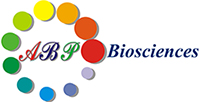Our Cell-Quant™ No Wash Cell Proliferation Assay Kit provides an accurate microplate–based fluorescence method for counting cells in a population, based on cellular DNA content. Our Cell-Quant™ Assay provides a very convenient workflow for high-throughput screening of cell proliferation and cytotoxicity–no washes, cell lysis, temperature equilibrations, or radioactivity required. The Cell-Quant™ Assay has a linear detection range from less than 100 to 20,000 cells per well in most cell types. The add-mix-read assay format makes it ideal for HTS applications. The assay can be completed in one hour, and the signal is stable for several hours, affording additional work flow convenience.
Features
- Simple workflow: No washes, cell lysis, temperature equilibrations, or radioactivity required
- Fast: Results in as little as 60 minutes
- High sensitivity: Detect as low as 100 cells
- Broad dynamic range: 100-20,000 cells
Specifications
| Platform: | Fluorescence plate reader |
| Detection Method: | Fluorescent |
| Ex/Em: | 490/520 nm |
| Product Size: | 1000 assays |
Applications
Cell proliferation and cytotoxicity analysis

Figure 1. Cell-Quant™ No Wash Cell Proliferation Assay Workflow

Figure 2. Quantitation of CHO cells using the Cell-Quant™ No Wash Cell Proliferation Assay Kit. Fluorescence measurements were made using a microplate reader with excitation at 485 nm and emission detection at 530 nm. The linear range of the assay under these conditions is from 100 to 20,000 cells per 100 µl sample. The inset shows the linearity that can be obtained at very low numbers of cells.
| Protocol (PDF): | A014 |
| MSDS (PDF): | MSDS-A014 |
Reference:
Abraham VC, Towne DL, Waring JF, Warrior U, Burns DJ,
J Biomol Screen (2008) 13:527-537
Activator of G protein signaling 3 promotes epithelial cell proliferation in PKD.
Nadella R, Blumer JB, Jia G, Kwon M, Akbulut T, Qian F, Sedlic F, Wakatsuki T, Sweeney WE, Wilson PD, Lanier SM, Park F,
J Am Soc Nephrol (2010) 21:1275-1280
Tan F, Naciri M, Al-Rubeai M,
Biotechnol Bioeng (2011) 108:454-464
- Cell-ID™ CFSE Cell Proliferation Kit
- Cell-ID™ Violet Cell Proliferation Kit
- iClick™ EdU Andy Fluor™ 488 Imaging Kit
- iClick™ EdU Andy Fluor™ 555 Imaging Kit
- iClick™ EdU Andy Fluor™ 594 Imaging Kit
- iClick™ EdU Andy Fluor™ 647 Imaging Kit
- iClick™ EdU Andy Fluor™ 488 Flow Cytometry Assay Kit
- iClick™ EdU Andy Fluor™ 647 Flow Cytometry Assay Kit
- iClick™ EU Andy Fluor™ 488 Imaging Kit
- iClick™ EU Andy Fluor™ 594 Imaging Kit
- CCK-8
- Cell-Quant™ MTT Cell Proliferation Assay Kit
- Cell-Quant™ AlamarBlue Cell Viability Reagent

